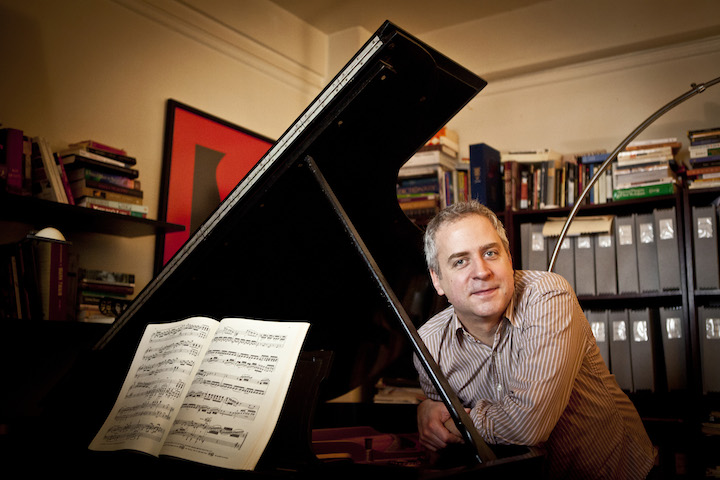
There is a very small company of composers who in their craft — and with the help of an equally small company of extra-fine interpreters — open doors to other states of existence and experience. This is not a flight of fancy; it is truth.
- Classical Music 101: What Does A Conductor Do? - June 17, 2019
- Classical Music 101 | What Does Period Instrument Mean? - May 6, 2019
- CLASSICAL MUSIC 101 | What Does It Mean To Be In Tune? - April 23, 2019
One current example before us is American pianist Jeremy Denk’s take on J.S. Bach’s Goldberg Variations. The music on this album goes well beyond the notes to present one person’s special take on a very special composition (you can read my review here).
One of the many great things about Denk is how well he manages to express in ordinary language the complex act of interpreting and relating to music. He wrote eloquently about learning the Goldbergs in the Guardian yesterday.
Pretty much each paragraph has something to say on a different aspect of our relationship with the music. Like this one:
The Goldbergs, insular and obsessed, have all the failings of classical music in general. The piece is a text reflecting on itself, satisfied in its own world, suggesting that everything you would ever want to know is contained within. The variations (by definition music about music) are subject to countless insider discussions in the outer world, to comparisons of recordings like heavyweight bouts, to that annoying word “definitive.” Despite this, Bach’s smile wins through. The piece is a lesson in many things, but primarily in wonder: the way that the tragic variations fuse seamlessly into the breathlessly comic, the way that simple scales become energy, joy, enthusiasm, the celebration of the most fundamental elements of music.
Or, as he writes about coming to the end of the piece — a moment that has more than once in live performance left me fighting tears:
When the theme returns at the end, you realise this is the last time you will hear that turn into bittersweet E minor (melancholy about melancholy), and also the last time you will experience the chain of fifths with which Bach escapes from it. I’ll admit it always chokes me up, not because the piece is over, not because things are ending, but because of a sense of the completeness of everything that has come before, the rightness, and – if it doesn’t sound too cheesy to say – the radiance of experience. It gives you that rare thing in human existence: a sense that, at the end of something, it has all been worthwhile.
Read the whole article here.
Here, to underline how complex musical beauty lurks everywhere in Bach — and in countless other places — when brought to life nicely, are the Toccata and Gigue from the Keyboard Partita No. 6 BWV830, according to Denk:
John Terauds
- Classical Music 101: What Does A Conductor Do? - June 17, 2019
- Classical Music 101 | What Does Period Instrument Mean? - May 6, 2019
- CLASSICAL MUSIC 101 | What Does It Mean To Be In Tune? - April 23, 2019



